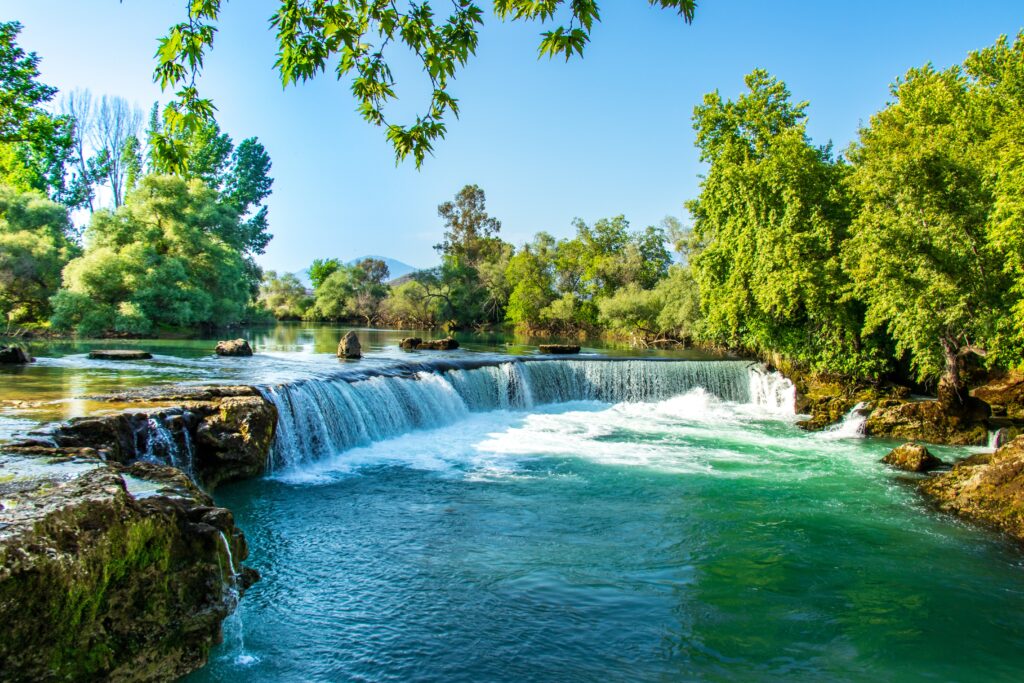our courses
How to apply for the course?
To enroll in the course, simply click the „Apply” button. Group submissions are welcome!
If you’re coordinating a project, such as for a group of teachers in the Erasmus+ program, please send us an email specifying the training program you’re interested in and the number of participants. We’ll respond promptly and tailor our offer to suit your needs.
Check the upcoming courses:
Other courses planned for 2024:
(detailed dates to be determined after receiving the first applications)
Team building in an educational institution
The training targets managerial and/or educational staff seeking to develop the capabilities necessary for effectively leading a team of employees and fostering successful teamwork.
Duration: 10 days, 5-6 hours. daily.
Topics:
- teamwork and effective operation,
- effective communication, principles of conflict resolution,
- building team commitment,
- the ability to formulate feedback,
- team thinking,
- team games - e.g. in the field of making the right decisions in a team, showing the benefits of cooperation in a team, building trust,
- exercises - creating an action plan for the team,
- exchange of international experience.
Building motivation among staff
The training is designed for educational and/or managerial personnel looking to enhance their motivation and effectiveness in educational activities. Duration: 10 days, 5-6 hours. daily. Topics: - self-motivation and its impact on the effectiveness of the educational institution, - awareness of one's abilities and limitations, - exercises - how to use and develop your talents and the role of the subconscious in achieving them, - sources of a positive attitude - self-concept psychology, - exercises - breaking rules and thought patterns, barriers and overcoming them in the process of generating ideas, - awareness of one's capabilities and limitations, including strengths and weaknesses - SWOT analysis, - exchange of international experience.
Communication and public speaking skills for staff
The training primarily caters to the management personnel of educational institutions. Duration: 10 days, 5-6 hours. daily. Topics: - what is communication? What is public speaking? - effective communication with employees, - elements of public speaking, qualities of a good speaker, - exercises - creating interesting presentations, - workshops - discovering and strengthening the individual style of communication and presentation of individual participants, - exercises - increasing the sense of self-confidence of participants during speeches, - exercises - retraining participants how to conduct presentations, - exchange of international experience.
Class management
The training targets educational staff seeking to proficiently manage a class or group engaged in non-formal education. Duration: 10 days, 5-6 hours. daily. Topics: - who is an effective class leader? - classroom management strategies, - skills necessary to manage the classroom, - the most common problems in class management, their causes, and ways to deal with them - international discussion, - exercises - methods, and techniques of activation, respecting the rules, - how to effectively motivate students? - setting goals, sharing responsibilities, joint problem solving, feedback, – exercises - role-playing in class management.
Innovative methods in working with a preschooler
The training is directed towards school education personnel who work with children in kindergarten settings. Duration: 10 days, 5-6 hours. daily. Topics: - getting acquainted with current trends and innovations in preschool education, - how to design experimental and creative activities? - exchange of international experiences - discussion on innovations in preschool education, - exercises in the use of selected educational methods, e.g. R. Laban's creative movement method, Veronica Sherborne's method, Kniess’ method, Carl Orff's method, Paul Dennison's method, project method, etc., - exercises - creating scenarios of innovative activities for children, role-playing.
NEUROBIC - mind training for seniors
The course covers the methods of mental gymnastics that can be used in the offer of non-formal education for the elderly. Duration: 10 days, 5-6 hours. daily. Topics: - how the learning process looks like in the elderly - aging of the brain, - how to exercise the brain - what is Neurobik, how to work with seniors, - effective methods and tools used in brain gymnastics, - practical exercises in brain gymnastics (memory games, remembering what you heard, the method of changing habits).
Information and communication technologies and their use in the educational offer addressed to the elderly
The training targets educational and managerial personnel involved in the adult education sector. Duration: 10 days, 5-6 hours. daily. Planned for June 2024. Topics: - interesting and effective information and communication tools applicable in the operation of an educational organization and in creating an educational offer for adults (seniors), - exercises - using applications such as Kahoot, Quizlet, Socrative, - exercises - creating and processing multimedia content (using e.g. Magisto), - using social media for educational purposes - example, - exercises - preparing multimedia presentations using available applications, - support for popular and cloud-based IT applications, - work with google drive, - exchange of international experience in the use of ICT in adult education.
Teaching methods in non-formal education
The training is intended for educational staff engaged in adult education, as well as school education personnel interested in integrating non-formal activities into formal education settings. Duration: 10 days, 5-6 hours. daily. Topics: - about non-formal education and its benefits, - challenges of non-formal education, - non-formal activities, working methods, and tools, - methods of motivating recipients of non-formal education, - good practices in non-formal education, innovative strategies - exchange of international experience, - workshops in groups - innovative methods in non-formal education - examples of activities (science picnics, the use of games, etc.), - inclusion of non-formal activities in formal education - optional.
Diversity in the group - tolerance and overcoming prejudices
The training targets educational personnel who work with adults. Duration: 10 days, 5-6 hours. daily. Planned for the turn of August and September 2024. Topics: - getting to know the tools and methods of working with adult students, allowing them to develop cultural sensitivity, tolerance, respect for other people and overcoming prejudices and preventing discrimination, - learning about cultural models and identities, - learning about the mechanisms leading to the spread of stereotypes, prejudices and discrimination, - exercises - ways to improve communication in a group, - getting to know new teaching methods and tools that can be used to promote diversity during classes with adults - including international exchange of experiences, - exercises, role-plays, games - developing cultural sensitivity and intercultural competence.
Green competencies
The training is designed for educational staff interested in integrating ecological topics into their classrooms. Duration: 10 days, 5-6 hours. daily. Topics: - what are green competencies? - the biggest ecological problems: climate change, soil degradation, loss of biodiversity - discussion, - tools and good practices of environmental education, - diagnosing barriers and problems in environmental education and searching for solutions, - discussion of sample lesson plans as part of environmental education, - exercises - creating your scenarios, role-playing, - international discussion and exchange of experience on environmental education.
Stimulate creativity and develop students' critical thinking
The training is targeted towards staff, particularly those in school education roles. Duration: 10 days, 5-6 hours. daily. Topics: - what is creative thinking? Why is it worth developing creativity? - a set of practices stimulating creative thinking, - exercises - examples of activities with the class (recording ideas, drawing, the chain of associations, product improvement, open-mindedness exercise, abstraction, madness - brainstorming, something from nothing, etc.), - the place of critical thinking in education, - practical exercises in critical thinking - defining the problem, finding information, - practical exercises in critical thinking - distinguishing facts from opinions, etc., - how to teach critical thinking in the classroom? – workshops and exchange of international experiences.
Intensive English language course
The course is tailored for managerial and educational staff seeking to enhance their English communication skills. The course content is customized to meet the participants' requirements, offering both basic and intermediate levels based on individual needs. Duration: 10 days, 5-6 hours. daily. Topics: - practicing spoken and written language skills, - practicing listening comprehension skills, - basic rules of grammar, - intensive vocabulary learning, - exercises - international conversations.
Preparation for the course
How to prepare for arrival?

Each participant must provide details regarding their health, allergies, and any dietary preferences associated with any health concerns. Additionally, participants are encouraged to have liability, accident, and health insurance coverage.
In Turkey, it is advisable to bring sunglasses, sunscreen with high UV protection, after-sun cream, and a hat to shield from the sun. It’s also recommended to carry a probiotic and necessary medications. Those planning to spend leisure time by the water should pack swimwear, flip-flops, a lightweight bag, and water shoes.
Stay

Participants will be housed in a hotel with rooms accommodating 1-2-3 individuals, each equipped with bathrooms, air conditioning, TV, and Internet access. Room assignments are communicated to participants prior to the mobility program, following the submission of applications. Upon arrival, participants receive a guided tour of the area to familiarize themselves with key locations in the city, including pharmacies, shops, and restaurants. Typically, this orientation occurs on the first day, but scheduling may vary based on arrival times. Numerous shops and restaurants are conveniently located near the accommodation. Participants will be provided with breakfast and dinner in the form of a diverse buffet served at the hotel restaurant.
Entertainment included

Course participants embark on a full-day organized excursion to notable sites such as the ancient city of Aspendos or Cappadocia, accompanied by a guide. Meals are provided for participants during the tour.
Additional entertainment

The Alanya region, where courses are typically held, offers an array of local attractions. Key highlights include traditional Turkish baths, bustling local bazaars, the scenic Dim River and Dim Cave, as well as expansive sandy beaches stretching for kilometers. Exploring local landmarks such as the Alanya Kalesi Fortress, Red Tower, Kale (Alanya Castle), and Ataturk’s House is highly recommended. Alanya boasts numerous dining options and a vibrant nightlife, primarily concentrated near the port area. For convenient transportation within the city center, dolmus (shared taxis) are readily available and accept payment directly to the driver in cash or card. Along the coast, bus travel is preferable, with city cards typically provided to participants by Go Up Academy, allowing for seamless exploration.


